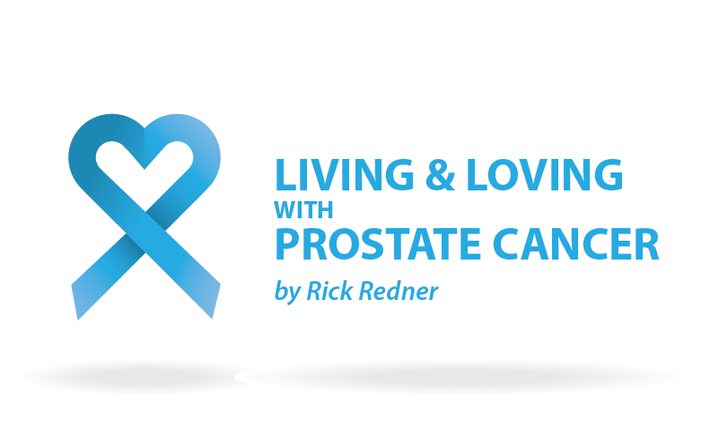This week, my wife and I had an unusual discussion. We debated which one of us would die first. I believe I’m going to die before my wife. I rely on the following facts to support my belief.
My wife and I are two years apart. The fact that I’m older makes it more likely I’ll die first. Studies show that in general, women live five to 10 years longer than men. Both of my wife’s parents are alive and in their 80s. Last, but not least, my wife is in excellent health, while I’m a cancer survivor.
You can’t imagine my shock and surprise when she dismissed my reasoning by stating that she believed I’d outlive her. When I asked her how and why she believed she’d die first — in light of her family history, her age, and her current state of good health — she said, “Being your caretaker for so many years took such a heavy toll on me that I believe I’m going to die first.”
At first, I thought my wife was joking. When I realized she was serious, I wanted to prove her wrong. The first article I found on the topic of caregiver health said this: “Research shows that the stress of caregiving can take a serious toll on the emotional and physical health of caregivers.”
The next article I read listed 30 activities that caregivers perform as they help care for a cancer patient. Some of those activities are “medication acquisition/dispensing; symptom management; meals and nutritional assistance; supervision of treatments; adherence; errands/bill paying; emotional support; coordinating care; monitoring using electronic devices; and communication with providers.”
The third article I read challenged my assumption that the partner treated for cancer was under significantly more stress than their healthy partner. This study found “that spouses are as distressed as cancer patients.”
I’m ashamed to admit that I never realized how many responsibilities, tasks, burdens, and stress my wife endured before, during, and after my prostate surgery (as well as my other 14 surgeries).
My wife was right and I was wrong. (That occurs way too many times in my marriage.) As a healthy caregiver, she’s endured significantly higher levels of stress and distress that was outside of my understanding or awareness. It’s entirely possible that the cumulative impact of the stress of caretaking could impact her future health and longevity.
If you are the person diagnosed and treated for prostate cancer or another type of cancer, your physical symptoms or side effects of treatment may occupy your entire world. You easily can lose sight of what your healthy partner is going through.
A word picture describes how I’ve felt during different phases of coping with cancer. I’m swimming in the ocean when, without warning, a painful cramp makes it impossible for me to swim or get back to shore. As I’m using every ounce of strength I possess to find my way back to shore, I’m too preoccupied with my own survival to notice that my spouse is next to me with a disabling cramp of her own. There’s a danger that I’m about to drown, which leaves me without the resources or ability to help my spouse.
I’m not proud to admit there were times I was solely focused on my difficulties. I did not attend to or support my wife in any way. If I’m painfully honest, there were times I resented my wife because she was healthy while I had cancer. I was the one living in diapers and hating the quality of my post-surgical life. For a brief period, I became so depressed that I was sorry I’d chosen and survived surgery. Both my wife and I needed and sought out professional help to get back to shore.
To the person diagnosed with cancer
There will be occasions when the only person you can think about is you. It’s all too easy to develop an attitude of entitlement that leads you to believe you’re the only one who is suffering and in need of care.
Prostate cancer is a couple’s disease. Your partner is suffering, too. Will you choose to support, encourage, and love one another, or will you each suffer together, alone?
Many men mistakenly believe that seeking help and support threatens their sense of independence and manhood.
Think back to my word picture. If you are in the middle of the ocean with a painful cramp that makes it impossible to swim back to shore, you have a choice. You can refuse help and drown, or signal to a lifeguard a few hundred feet away to receive help.
As someone who has lived both options, I’ve learned that it’s important to create a team of lifeguards. Your teammates may include your partner, friends, family, health care professionals, folks further along in the journey, or your community of faith. If necessary, add a paid professional to help deal with the emotional and relational fallout that comes from receiving a cancer diagnosis. Don’t entertain the foolish thought you can swim back to shore alone when a severe cramp makes it impossible.
To the caregiver
You’ll probably face a portion of this journey without the emotional support and comfort from your partner. Therefore, it’s extremely important for you to take care of yourself.
Coping with a partner with cancer makes it vitally important for you to learn the skills of self-care. Your need for sleep, adequate nutrition, exercise, company, downtime, prayer time, and fun do not go away, and those needs should not be ignored.
Here’s an excellent article, a must-read for caregivers: “How Caregivers Can Take Care of Themselves.” You will need these skills in order to make it back to shore on your own.
Cancer is a relationship-changing event. You have the opportunity to use your experiences with cancer to connect deeply with the important people in your life or isolate yourself from everyone. I hope you choose the path that leads to closeness, intimacy, and love.
***
Note: Prostate Cancer News Today is strictly a news and information website about the disease. It does not provide medical advice, diagnosis, or treatment. This content is not intended to be a substitute for professional medical advice, diagnosis, or treatment. Always seek the advice of your physician or other qualified health provider with any questions you may have regarding a medical condition. Never disregard professional medical advice or delay in seeking it because of something you have read on this website. The opinions expressed in this column are not those of Prostate Cancer News Today, or its parent company, BioNews Services, and are intended to spark discussion about issues pertaining to prostate cancer.



One comment